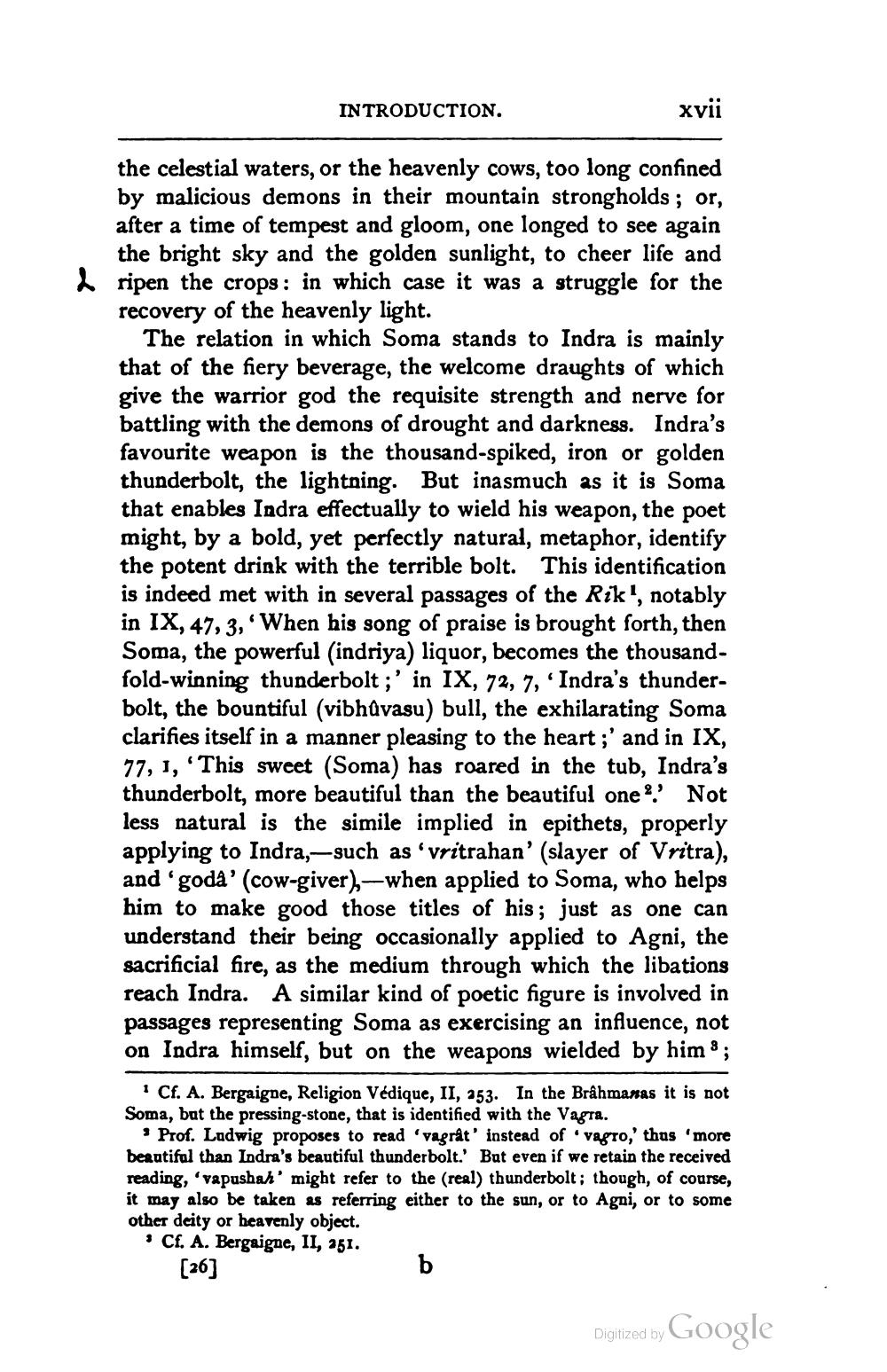________________
INTRODUCTION.
xvii
the celestial waters, or the heavenly cows, too long confined by malicious demons in their mountain strongholds; or, after a time of tempest and gloom, one longed to see again the bright sky and the golden sunlight, to cheer life and ripen the crops : in which case it was a struggle for the recovery of the heavenly light.
The relation in which Soma stands to Indra is mainly that of the fiery beverage, the welcome draughts of which give the warrior god the requisite strength and nerve for battling with the demons of drought and darkness. Indra's favourite weapon is the thousand-spiked, iron or golden thunderbolt, the lightning. But inasmuch as it is Soma that enables Indra effectually to wield his weapon, the poet might, by a bold, yet perfectly natural, metaphor, identify the potent drink with the terrible bolt. This identification is indeed met with in several passages of the Rik', notably in IX, 47, 3, 'When his song of praise is brought forth, then Soma, the powerful indriya) liquor, becomes the thousandfold-winning thunderbolt ;' in IX, 72, 7, · Indra's thunderbolt, the bountiful (vibhavasu) bull, the exhilarating Soma clarifies itself in a manner pleasing to the heart;' and in IX, 77, 1, 'This sweet (Soma) has roared in the tub, Indra's thunderbolt, more beautiful than the beautiful one?! Not less natural is the simile implied in epithets, properly applying to Indra,—such as 'vritrahan' (slayer of Vritra), and 'goda' (cow-giver),—when applied to Soma, who helps him to make good those titles of his; just as one can understand their being occasionally applied to Agni, the sacrificial fire, as the medium through which the libations reach Indra. A similar kind of poetic figure is involved in passages representing Soma as exercising an influence, not on Indra himself, but on the weapons wielded by him ;
Cf. A. Bergaigne, Religion Védique, II, 253. In the Brahmanas it is not Soma, but the pressing-stone, that is identified with the Vagra.
Prof. Ludwig proposes to read 'vagrát' instead of .vagro,' thus 'more beautiful than Indra's beautiful thunderbolt.' But even if we retain the received reading, 'vapushah' might refer to the (real) thunderbolt; though, of course, it may also be taken as referring either to the sun, or to Agni, or to some other deity or heavenly object. . Cf. A. Bergaigne, II, 251.
[26]
Digitized by Google




